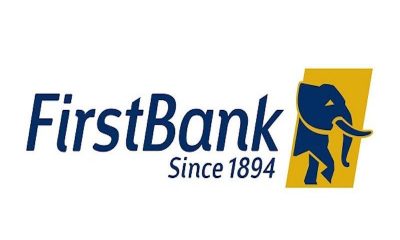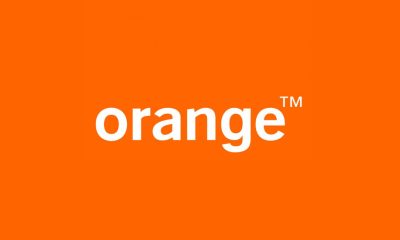Jobs
Top Jobs In Africa That Don’t Exist Yet

Sixty percent of the best jobs over the next decade have yet to be invented. At least that’s what futurologist Thomas Frey likes to say. This is excellent news because Africa will require a large number of new jobs in order to reverse its appalling young unemployment rates. Where will the employment come from? African social entrepreneurs are providing new chances by transforming their chosen areas. Here is a list of top jobs I expect to employ young people in Africa during the next decade.
1. “Diversity Designer”
As the globe becomes more interconnected, the ability to form and lead diverse teams will be essential in every industry. In Kenya, Fred Ouko established ANDY (the Action Network for the Disabled). Large firms use ANDY to hire dozens of young people with disabilities, and they report that diverse teams are better equipped to adapt to changes and develop innovative solutions. Does your firm require a Diversity Designer?
2. “University Founder”
Taddy Blecher launched CIDA City Campus, South Africa’s first free university, in 2000. Since then, 6,000 graduates have gotten a free education in exchange for running the day-to-day operations. Six other institutions built on same ideas have educated over 600,000 young people, but demand remains high throughout Africa. University founders that can offer world-class, entrepreneurial, and free education will be in high demand!
3. “Wellness Coach”
Paige Elenson from Kenya founded the Africa Yoga Project in 2006. Today, you may book a private yoga instruction online with one of over 70 professional instructors or attend one of Nairobi’s more than 300 weekly yoga programs. When AYP expands throughout the continent and its alumni start new businesses in the global wellness and health tourism market (which is now worth an estimated $3 billion per year), you’ll need to hire a Wellness Coach to help you sort through all the alternatives!
4. “Invisible Executive”
Across West Africa, independent and entrepreneurial workers at Karim Sy’s JokkoLabs network are challenging traditional employment models. In these collaborative environments, “invisible executives” organize teams around developing prospects. Do you have a tricky challenge? Visit one of the six JokkoLabs, where over 3,000 coworkers are already solving 21st century challenges!
5. “Ecosystem Advocate”
For too long, human economic activities have failed to adequately account for nature’s rich contributions. In Benin, Salim Dara founded Solidarité Rurale to create a network of demonstration farms where kids may learn about nature’s interconnection and the significance of balanced, sustainable ecosystems. Graduates may one day work as Ecosystem Advocates, defending urban watersheds or sensitive landscapes.
6. “Alien Experience Advisor”
Where will we find people with enough global empathy to go through “normal” workdays replete with international video conferencing and intercontinental brand strategy? Begin by recruiting talent from the Nafisika Trust, which Vickie Wambura established in 2006. Nafisika strives to transform Kenya’s jails into thriving places of rehabilitation and education. Last year alone, Nafisika’s compassionate volunteers provided more than 11,000 hours of pro bono assistance to 4,500 convicts. These volunteers are highly skilled cultural navigators.
7. “Nutrient Banker”
Tools for monitoring nutrients in soil, food, and human bodies are becoming more sophisticated and available to the general public. Soon, home gardeners and smallholder farmers will be able to purchase Soil IQ, a wireless soil sensor invented by Jason Arambaru that assists farmers by converting soil health readings into immediate agricultural advise. With better technologies, we may expect to see new specialists emerge as soil health experts, nutrient monitors, and even Nutrient Bankers, who will create, maintain, and supply a broad spectrum of nutrition in landscaping.
8. “Climate Change Adaptability Agent”
Verengai Mabika’s Development Reality Institute in Zimbabwe has taught 800 students from 28 nations about the earth’s changing climate system via online courses. Hundreds of primary school pupils in Zimbabwe also frequently attend “Cool Clubs.” Verengai’s ultimate purpose is to increase society’s adaptability by equipping young people to face 21st-century issues. Future employers will appreciate him!
9. “Rat Trainer”
Bart Weetjens was upset that the world’s greatest solutions for detecting unexploded ordinance and infections relied on expensive, foreign technologies, despite the fact that a hardy African rodent had all the necessary tools: a keen sense of smell and a willingness to learn! Today, APOPO rat trainers in Africa and Asia have demined over 62,000 acres and identified 5,087 previously misdiagnosed tuberculosis cases. Rat trainers are in high demand because to the numerous applications of this “technology” – from shipping ports to airport security!
Some of these vocations may still be a little ahead of their time, but you can prepare for all of them by establishing a changemaker attitude via practical experience. Empathetic, creative, action-oriented individuals who are willing to think big, form teams, and change the world will be in high demand in the future.












